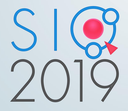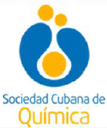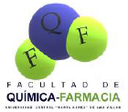Executive Secretary

7th International Chemistry Symposium
SIQ 2019
Abstract
Abstract We will present our group results in the recombinant production of two enzymes (fructosyltransferase and invertase) that convert sucrose into value-added products and one enzyme (dextranase) used as aid to sugar production and refining. Constructed plasmids carrying several in-tandem copies of the transgene fused to a secretory signal peptide and under the transcriptional control of the constitutive glyceraldehyde 3-phosphate dehydrogenase (GAP) promoter were integrated in the Pichia pastoris genome. After fed-batch fermentations, each recombinant enzyme was recovered with purity above 85% from culture supernatants and characterized in terms of yield, posttranslational modifications, biochemical properties and catalytic performance. Fructosyltransferase converted sucrose to short-chain fructooligosaccharides (scFOS), particularly the most relevant prebiotic 1-kestose. Invertase completely hydrolyzed sucrose at elevated temperatures (60-70°C). The endo-type dextranase degraded microbial dextran and did not react on sucrose. For commercial purposes, each enzyme was recovered from the yeast culture supernatant and freeze-dried to a stable soluble powder. The recombinant P. pastoris strains developed in this study are cost-effective sources for the scaled production of three enzymes with application in the sugar and/or food industry.
Resumen
Abstract We will present our group results in the recombinant production of two enzymes (fructosyltransferase and invertase) that convert sucrose into value-added products and one enzyme (dextranase) used as aid to sugar production and refining. Constructed plasmids carrying several in-tandem copies of the transgene fused to a secretory signal peptide and under the transcriptional control of the constitutive glyceraldehyde 3-phosphate dehydrogenase (GAP) promoter were integrated in the Pichia pastoris genome. After fed-batch fermentations, each recombinant enzyme was recovered with purity above 85% from culture supernatants and characterized in terms of yield, posttranslational modifications, biochemical properties and catalytic performance. Fructosyltransferase converted sucrose to short-chain fructooligosaccharides (scFOS), particularly the most relevant prebiotic 1-kestose. Invertase completely hydrolyzed sucrose at elevated temperatures (60-70°C). The endo-type dextranase degraded microbial dextran and did not react on sucrose. For commercial purposes, each enzyme was recovered from the yeast culture supernatant and freeze-dried to a stable soluble powder. The recombinant P. pastoris strains developed in this study are cost-effective sources for the scaled production of three enzymes with application in the sugar and/or food industry.
About The Speaker

Dr. Carmen Menéndez Rodríguez






